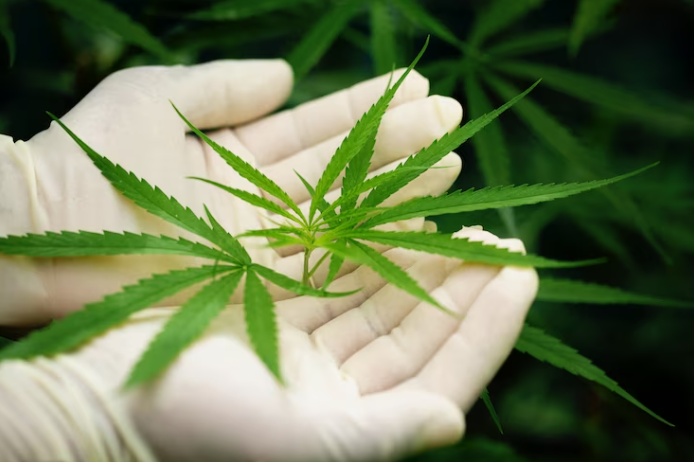
Navigating the Unknown: An In-Depth Look at CBD Hemp’s Potential Side Effects and Health Risks
CBD hemp has gained tremendous popularity in recent years for its potential health benefits. People use it for various purposes, from managing anxiety to alleviating chronic pain. However, with the surge in its popularity, concerns have been raised about its potential side effects and health risks. In this comprehensive article, we will take an in-depth look at CBD hemp and explore its possible side effects and health risks. We will also provide insights based on first-hand knowledge and credible sources to help you make informed decisions about using CBD hemp.
What is CBD Hemp?
Before we delve into the potential side effects and health risks of CBD hemp, let’s first understand what it is. CBD, short for cannabidiol, is a natural compound found in the hemp plant (Cannabis sativa). Unlike THC (tetrahydrocannabinol), another well-known compound in cannabis, CBD does not produce psychoactive effects. This means that CBD does not make you feel “high” or intoxicated.
CBD is available in various forms, including oils, tinctures, edibles, topicals, and capsules. It interacts with the endocannabinoid system in our bodies, which plays a crucial role in maintaining overall balance and well-being.
Is CBD Hemp Legal?
One of the primary concerns surrounding CBD hemp is its legal status. The legality of CBD varies from one country to another and even within different states in the same country. In the United States, for instance, CBD derived from hemp with less than 0.3% THC is legal at the federal level. However, state laws may differ, so it’s essential to check your local regulations before purchasing or using CBD hemp products.
Potential Side Effects of CBD Hemp
While CBD is generally well-tolerated by most people, it can cause some side effects, especially when taken in large doses. It’s crucial to be aware of these potential side effects to use CBD safely.
- Dry Mouth: One of the most common side effects of CBD is dry mouth. CBD can temporarily reduce saliva production, leading to a dry and parched feeling in the mouth. Staying hydrated can help alleviate this issue.
- Drowsiness: Some individuals may experience drowsiness after taking CBD, especially when using higher doses or if they are new to CBD. If you plan to drive or operate heavy machinery, it’s best to avoid CBD during those times.
- Changes in Appetite: CBD can affect your appetite, causing some people to experience increased hunger, while others may have a reduced desire to eat.
- Digestive Issues: In some cases, CBD can lead to digestive problems like diarrhea or upset stomach. If you experience such issues, try reducing the dosage or consult a healthcare professional.
Health Risks of CBD Hemp
While CBD is generally considered safe, there are some potential health risks associated with its use, especially when used inappropriately or without proper guidance.
- Drug Interactions: CBD can interact with certain medications, potentially affecting their efficacy. If you are taking any medications, consult your doctor before using CBD to avoid adverse interactions.
- Liver Concerns: Some studies have suggested that high doses of CBD may cause liver toxicity. However, these studies were conducted using extremely high doses not typically used in real-world scenarios. Nonetheless, it’s essential to use CBD responsibly and avoid excessive dosages.
- Quality and Purity: Another potential health risk is the lack of regulation in the CBD industry. Some products may be mislabeled or contain contaminants. Choose reputable brands that provide third-party lab testing for their products.
FAQs
Q: Is CBD hemp the same as marijuana?
A: No, CBD hemp and marijuana are different. While both come from the cannabis plant, CBD hemp contains low levels of THC, which is responsible for the psychoactive effects of marijuana.
Q: Can CBD hemp get you high?
A: No, CBD hemp does not cause intoxication. It lacks the psychoactive properties of THC.
Q: How should I take CBD hemp for the best results?
A: The ideal dosage and method of consumption vary from person to person. It’s best to start with a low dose and gradually increase it while monitoring its effects.
Q: Can CBD hemp help with anxiety?
A: Some studies suggest that CBD may help alleviate anxiety, but individual responses can vary. It’s crucial to consult a healthcare professional for personalized advice.
Q: Is CBD hemp addictive?
A: CBD is not considered addictive, and it does not cause physical dependence. However, some individuals may develop a psychological dependency on CBD.
Q: Can I give CBD hemp to my pets?
A: While some pet owners use CBD for their animals, it’s essential to consult a veterinarian before giving CBD to pets, as their dosage requirements and tolerances may differ from humans.
Conclusion
CBD hemp shows promise as a potential natural remedy for various health issues, but it’s essential to be aware of its potential side effects and health risks. Like any supplement or medication, CBD should be used responsibly and under the guidance of a healthcare professional, especially if you are taking other medications or have pre-existing health conditions.
Navigating the unknown world of CBD hemp requires prudence, research, and mindfulness of your own body’s responses. By understanding the potential side effects and health risks, you can make informed decisions about incorporating CBD hemp into your wellness routine.